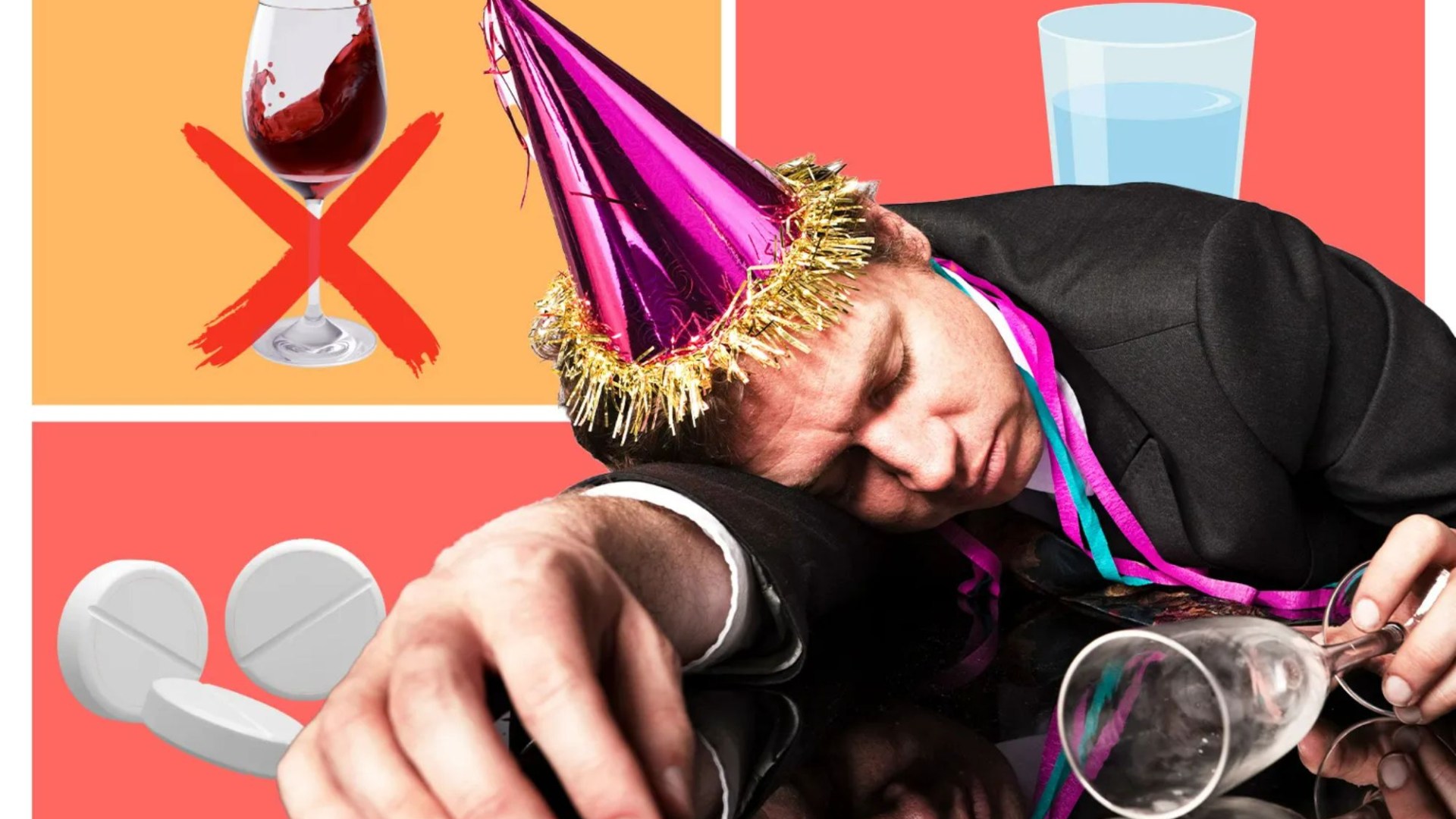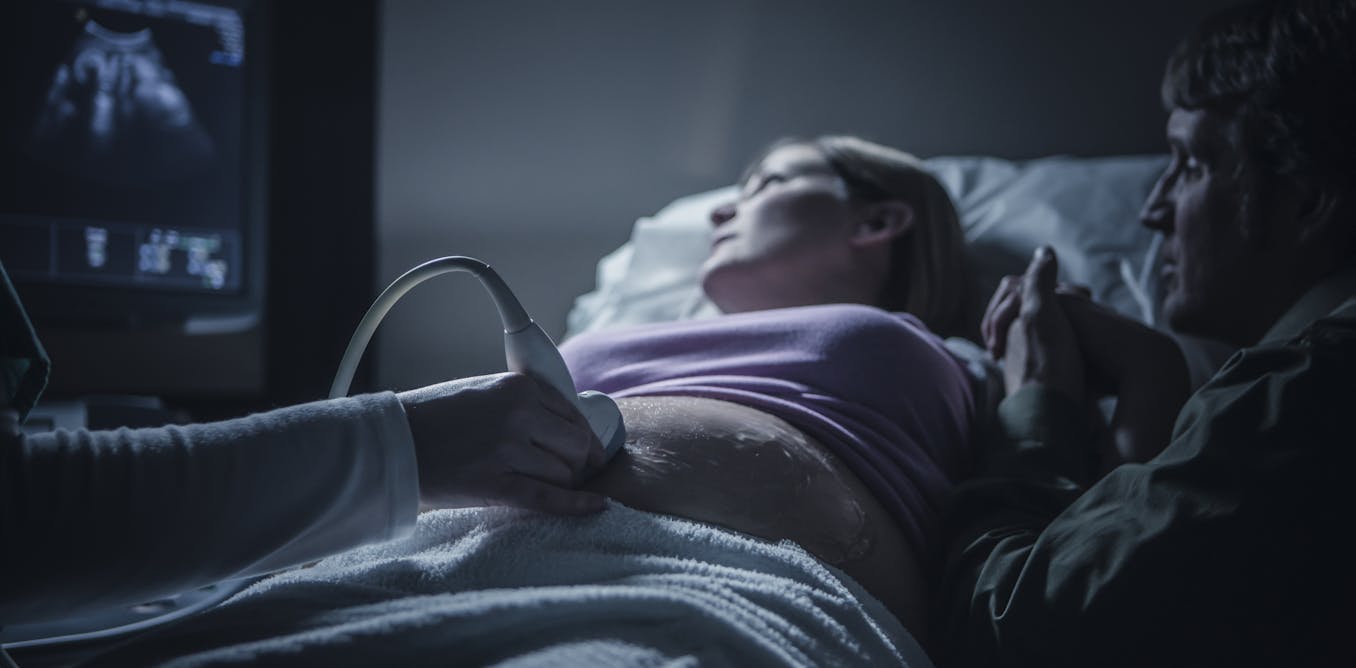THE dreaded hangover.
Most of us are familiar with the feeling: the headache, the dry mouth, the vague sense of regret.
1
And with the Christmas party season in full swing, many of us can expect a few sore heads in the days ahead.
Sadly, the only guaranteed way to avoid a hangover is not to drink.
But if you can’t say no to wine or three after work this week, here are some expert-backed tips to avoid feeling absolutely horrendous.
“Unfortunately, there isn’t really any science-backed hangover ‘cures’,” Sam Royle, from the University of Salford and a member of the Alcohol Hangover Research Group, said.
“At least, there is nothing that is presented as a hangover cure that has been rigorously tested and shown to be effective in relieving symptoms.
“There are however a number of things you could do that might help alleviate symptoms of hangover,” he told Sun Health.
1. Pick your poison wisely
A good rule of thumb is that the darker the drink, the more severe your hangover is likely to be.
Think red wine, whisky and brown tequila as the enemy here.
This is because darker drinks contain a greater number of what are called “congeners”, according to Sam.
“Congers are biologically active compounds in a drink (i.e. chemicals that react with systems in the body), that aren’t ethanol (alcohol) or water,” he said.
“These congeners are created as part of the production processes for alcoholic drinks and include substances like methanol, esters, and tannins.”
If you’re a wine drinker, you may be familiar with the effects some of these chemicals can have on drinks.
“Tannins are known to affect the ‘legs’ on a wine (AKA, how much it ‘sticks’ to the glass), and are found in greater levels in red wine (compared to white wine),” he explains
“These congeners though, have consistently shown relationships with more severe hangovers”.
2. Guzzle water
When it comes to preventing hangovers, we all know drinking water is important, but why?
“Whilst we don’t consider dehydration to be a primary cause of hangover, dehydration may exacerbate hangover symptoms, so drinking a bit of water before bed and when you get up isn’t going to hurt,” Sam said.
You can even try adding your favourite multi-vitamin effervescent, which may help in restoring any lost nutrients associated with dehydration, he added.
3. Factor in more sleep
One of the most commonly, and most strongly reported, symptoms of hangover is tiredness.
“This is because when people have been drinking they tend to have gone to bed later and slept less than they would usually,” Sam said.
“But also the effects that alcohol has in disrupting the cycles of sleep.”
He said: “I personally would recommend planning the morning after drinking to allow for some extra time sleeping.
“A mild stimulant like coffee can help combat the tiredness experienced during a hangover.”
Why do some people get worse hangovers than others?

Ever wondered why some people seem to breeze through the morning after a big night out while others feel like they’ve been hit by a train?
It turns out the science of hangovers is as complex as it is painful.
“Variability in the experience of hangovers is something we see in research,” says Sam Royle, from the University of Salford and a member of the Alcohol Hangover Research Group, told Sun Health.
“Around five per cent of people report what we call hangover-resistance – they can drink amounts that would typically lead to a hangover but claim they don’t experience one.”
However, even in these cases, markers of immune response still spike, meaning their bodies are reacting, even if they don’t feel the effects.
For the rest of us mere mortals, the severity of a hangover can come down to three main factors: genetics, drinking habits, and psychology.
1. Genetics play a role
“Some people have reduced expression of a gene that produces aldehyde dehydrogenase, a key enzyme in alcohol metabolism,” explains Sam.
This can lead to the infamous “flushing” reaction – when someone turns red after a drink – and it’s often accompanied by more severe hangovers.
In fact, studies suggest genetics account for 24 per cent of hangover variability in men and 16 per cent in women.
2. What you drink matters
The type of alcohol you consume also plays a part, the expert said.
Drinks with higher levels of congeners – chemical byproducts of fermentation found in dark spirits like whiskey and red wine- tend to cause worse hangovers.
And then there’s the obvious: how much you drink, how quickly, and whether you’ve eaten beforehand.
3. Your mindset matters more than you’d think
Personality traits and pain tolerance can even influence hangover severity.
“People who focus negatively on pain tend to report worse hangovers,” says Royal.
Interestingly, how drunk you feel while drinking is one of the strongest predictors of next-day misery—factors like stress, tiredness, and how fast you’re drinking can all amplify that sensation.
While science hasn’t cracked the code of why some people suffer more than others, researchers are investigating these patterns to uncover potential links between hangover severity and health risks, such as addiction.
For now, the best defence is moderation—and maybe a good breakfast before heading to the pub!
4. Ibuprofen, not paracetamol
When you wake up with a throbbing alcohol-induced headache, your first instinct might be to grab some paracetamol.
But research suggests immune responses and inflammation are major culprits behind many hangover symptoms – meaning paracetamol might not be the ultimate cure you’re hoping for.
“It’s likely that these include symptoms people would typically associate with ‘pain’ or ‘aches’ (e.g. headache, stomach ache),” Sam said.
“As these symptoms are thought to be linked to inflammation, an anti-inflammatory painkiller is likely to be more effective than painkillers that don’t have anti-inflammatory action.
“So if you are reaching for the painkillers, ibuprofen or aspirin is likely to be more effective than paracetamol.”
5. Do things that raise your mood
Many of those who drink will be familiar with the dreaded anxiety, also known as ‘hangxiety’, that comes the day after drinking.
It can leave you lying in bed, cringing at last night’s missteps and regretting things you said.
The overwhelming feeling of embarrassment might even leave you feeling a bit low.
To tackle this, Sam suggested you “treat yourself” to something that boosts your mood.
This could mean lounging at a friend’s house or indulging in your favourite comfort food.
“This is one possible explanation as to why everyone has their own go-to hangover cure based on doing (or having) something they like,” Sam said.
“There’s probably no biological benefit in addressing hangover or its symptoms when I have a big (not so healthy) breakfast after a night out, but as something I enjoy, it makes me feel better!”
How to cut back on drinking
If you’re concerned about your drinking, a good first step is to see a GP.
They’ll be able to give advice and support on how to manage your drinking habits and cut back safely.
This might involve counselling, medicines or detox services.
There are many charities and support groups you can join or speak to, as well as helplines:




